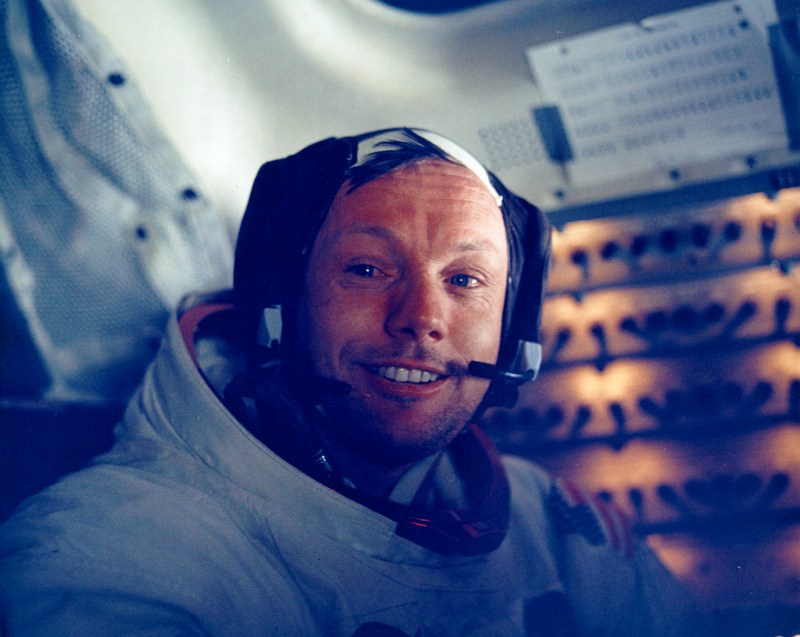40 years ago, like pretty much everybody in the world, I was glued to my TV set watching Neil Armstrong and Edwin Aldrin set their spacecraft down on the surface of the Moon, and then go out and walk around on it and, mission accomplished, take off again and come gloriously home. I still get a little quiver in my soul when I think of those two guys and that wonderful week.
It hadn’t been just two astronauts who had taken off from the Cape on that July day in 1969, though. Actually there had been a third man aboard. His name was Michael Collins. He was the one whose job was to stay make sure the return vessel was where the lunar lander could find and mate with it when the landing crew was ready to come home.
Of course everybody remembered Aldrin and Armstrong. but truthfully I had almost forgotten that Collins existed until July, 1991, when I found myself shaking his hand on the deck of the Hawaiian cruise ship Independence, which was preparing for a week’s cruise around the Hawaiian islands. The ship had a special purpose on this run. Midway through the week the sun would undergo a total eclipse, visible from the neighborhood of Hawaii’s Big Island. It would be job of the captain, in those precious seconds of totality, to jockey his giant ship right under whatever patch of clear sky he could fint for getting the view. And to get them in a good mood the cruise line invited a few professional lecturers including Michael and me.
Of course we had a lot of free time. All the time the landing pair were gone he was fingering a little leather tag around his neck which gave him instructions on exactly what to do if any of a couple of dozen problems arose. For almost everything that might go wrong Houston had a solution, or at least something they could try. But for one possibility the tag had no cure. That was what to do if the lander failed to take off. And, Michael said, the whole time Aldrin and Armstrong were gone he spent trying to think of what he could say if it didn’t.
Frederik Pohl is a distinguished science fiction writer, editor, and fan. He has written over fifty novels, dozens of shorter works, and received, among many honors, six Hugos (for both writing and editing), three Nebulas (including the Nebula “Grand Master” Award for lifetime contributions to the field), and two Campbells. He is also a noted lecturer, teacher, and non-fiction author.










